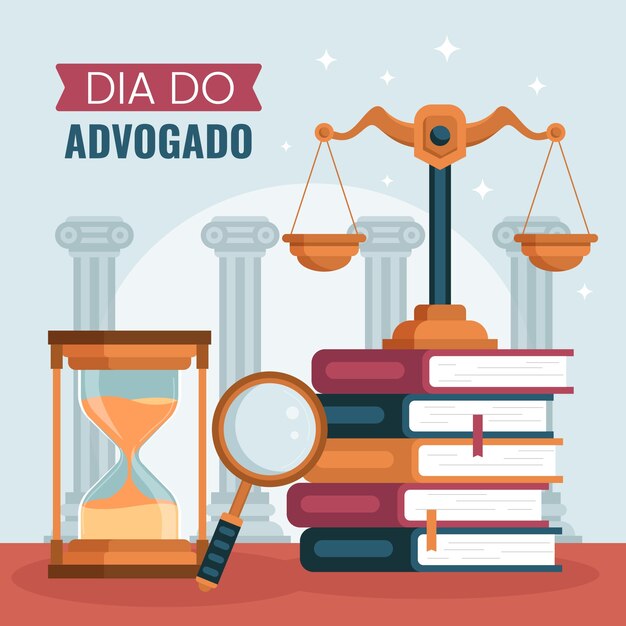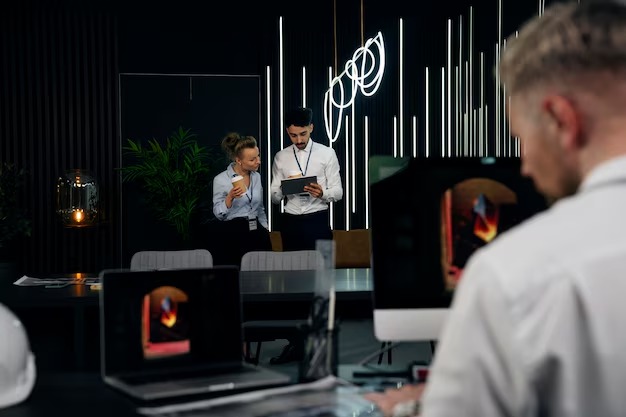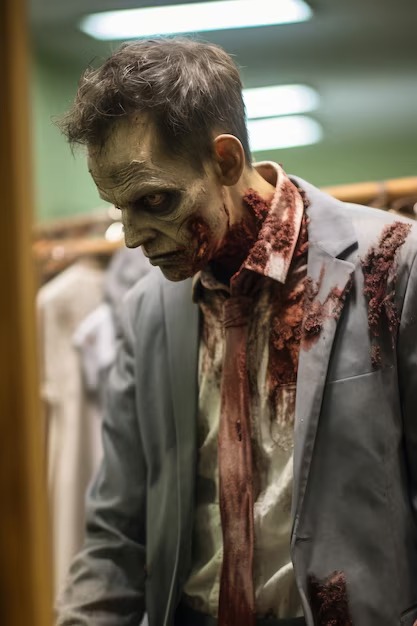
The Importance of Jury Selection in Avoiding Shocking Verdicts
The Importance of Jury Selection in Avoiding Shocking Verdicts
The foundation of a fair legal process lies in the group of individuals tasked with evaluating the evidence and delivering a conclusion that reflects societal values. This vital assembly serves not only as a mechanism for legal accountability but also as a safeguard against unexpected or extreme judgments. The collective perspectives and backgrounds of these individuals significantly shape the deliberation process and ultimately influence the outcomes of trials.
When the characteristics and beliefs of this assembly accurately mirror the community at large, the likelihood of balanced and reasoned decisions increases. Diverse viewpoints can enhance discussions, allowing for a more comprehensive understanding of the nuances involved in each case. This inclusivity aids in crafting resolutions that resonate with both the legal framework and social expectations, diminishing the risk of conclusions that may astonish or bewilder the public.
Incorporating various backgrounds and experiences not only enriches deliberation but also helps mitigate biases that might lead to discordant conclusions. By ensuring that this panel is representative and well-rounded, the judicial system can work towards fostering trust and confidence among citizens, which is essential for the integrity of the rule of law. Thus, the process of gathering individuals for this critical role is a pivotal aspect of maintaining balance and fairness within the judicial landscape.
Understanding the Jury Selection Process
The process of assembling a panel of peers to adjudicate a case is a crucial aspect of the legal system. This intricate procedure involves identifying and evaluating individuals to ensure that the final group is impartial and capable of rendering a fair decision based on the evidence presented. Success in this endeavor greatly influences the outcome of legal proceedings and public confidence in the judicial system.
During this procedure, potential candidates are summoned from the community, creating a diverse pool that reflects the societal demographics. Legal representatives from both sides actively engage in questioning these individuals, aiming to uncover biases or predispositions that may affect their judgment. This phase is essential, as it not only establishes the composition of the panel but also protects the rights of the accused and the integrity of the process.
Thorough evaluation of each individual’s background, experiences, and beliefs plays a significant role in forming a capable decision-making body. It is through this careful appraisal that the legal framework seeks to uphold fairness and justice, as it ensures that those tasked with determining the outcome are truly reflective of the community’s conscience.
In summary, the meticulous approach to forming a panel of adjudicators serves as a safeguard for ensuring that justice is administered fairly, irrespective of the complexities surrounding each case. By prioritizing diversity and impartiality, the system fosters trust and upholds the foundational principles of law.
Factors Influencing Juror Decision-Making
Understanding what drives the choices of panel members is crucial in the legal process. The interplay of personal, social, and contextual elements creates a complex framework that shapes their conclusions. Factors such as background, beliefs, and environmental influences can significantly sway their judgment, ultimately impacting the outcomes of judicial proceedings.
| Factor | Description |
|---|---|
| Personal Background | The demographic characteristics, education, and life experiences of an individual can influence their perceptions and decision-making processes. |
| Bias and Prejudice | Unconscious biases stemming from personal beliefs or societal norms may affect how evidence is interpreted and weighed. |
| Group Dynamics | The interaction among panel members can lead to conformity or peer pressure, swaying individuals in the decision-making process. |
| Emotional Appeal | Emotions elicited by the case can lead to decisions that are more reactive than rational, potentially overriding logical analysis. |
| Media Influence | Exposure to coverage or commentary related to the case can shape perspectives, altering how the situation is viewed during deliberations. |
| Case Presentation | The manner in which evidence and arguments are presented can significantly impact how panel members perceive the credibility and relevance of information. |
Role of Voir Dire in Trials
In the intricate realm of legal proceedings, the process of assessing potential jurors plays a crucial role in the administration of justice. This initial phase allows both parties to gain insight into the backgrounds, beliefs, and biases of individuals who may eventually partake in rendering a decision. Such scrutiny not only fosters fairness but also upholds the integrity of the entire legal system.
Establishing a Fair Courtroom Environment
The examination of prospective jurors serves to establish a balanced atmosphere within the courtroom. By identifying and addressing any preconceived notions or connections that may influence the participants, attorneys can work towards ensuring that the panel is impartial. This careful vetting process creates a foundation where evidence can be evaluated objectively, ultimately benefiting the trial’s outcome.
Enhancing Trust in the Legal System
Moreover, the thoughtful engagement with individuals during this preliminary phase enhances public confidence in the judicial process. When community members see that there is a dedicated effort to assemble a neutral panel, it reinforces their belief in the fairness of the trial. Such transparency is vital for maintaining trust in the rule of law and the principles of justice.
Impact of Bias on Verdict Outcomes
Preconceived notions can significantly influence the outcomes of legal decisions, often leading to results that may not align with the presented evidence. The presence of bias, whether conscious or unconscious, can skew perceptions and judgment, ultimately affecting the fairness of the process. Understanding how these inclinations manifest is crucial for ensuring equitable resolutions in the justice system.
Types of Bias and Their Effects
Cognitive biases, such as confirmation bias, can lead individuals to favor information that corroborates their existing beliefs, while disregarding contradictory facts. This mental shortcut often results in skewed interpretations of evidence, undermining the objectivity necessary for just conclusions. Additionally, social biases, including stereotypes and prejudices, may cloud judgment, placing undue weight on irrelevant characteristics rather than focusing purely on the case at hand.
Mitigating Bias Through Awareness
Strategies for Effective Jury Selection
The process of assembling a panel of individuals to hear a case plays a crucial role in the administration of justice. It is vital to employ thoughtful approaches to ensure that the selected group reflects fairness, impartiality, and an understanding of the nuances involved in each matter. By utilizing a variety of techniques, legal representatives can enhance the quality of their chosen individuals and mitigate the potential for unexpected outcomes.
- Comprehensive Questionnaires: Developing detailed questionnaires can help gauge the backgrounds, beliefs, and biases of potential candidates. This tool encourages transparency and aids in identifying any preconceptions that may affect judgment.
- In-Depth Voir Dire: Conducting thorough voir dire allows attorneys to engage directly with candidates, facilitating a deeper understanding of their perspectives. This process can uncover hidden biases and inconsistencies in their viewpoints.
- Diversity Awareness: Recognizing the significance of diverse perspectives is essential. A varied panel can bring different experiences and insights, fostering a more balanced deliberation.
- Behavioral Analysis: Observing candidates’ non-verbal cues during interactions can provide valuable information about their attitudes and dispositions, aiding in the evaluation of their potential fit for the case.
Implementing these strategies creates a foundation for a balanced assembly, ultimately leading to more informed decision-making and a fair assessment of the case at hand. By taking a proactive approach, legal practitioners can work towards achieving a just process that upholds the integrity of the legal system.
Case Studies of Verdict Discrepancies
This section explores instances where outcomes of trials diverged significantly from public expectations or the evidence presented. By analyzing various situations, we can better understand the factors that contribute to these unexpected conclusions. Such case studies illuminate the complexities of the legal process and highlight the role of the decision-making group in shaping outcomes.
Highlighted Cases
-
The Casey Anthony Trial:
This highly publicized case involved a mother accused of murdering her two-year-old daughter. Despite considerable media coverage and public outrage, the final decision rendered was one of not guilty, sparking widespread criticism and debate about the effectiveness of the legal framework.
-
The O.J. Simpson Trial:
In this infamous trial, a former NFL star was accused of double homicide. The acquittal defied the expectations of many, leading to discussions on systemic issues within the judicial process and the influence of race and celebrity status.
Factors Influencing Discrepancies
-
Media Influence:
Constant coverage and public opinion may create pressure on the process, impacting the perspectives of those involved.
-
Bias:
Personal beliefs and biases of the group can significantly alter the interpretation of evidence, leading to unexpected outcomes.
-
Complexity of Evidence:
Cases may involve complicated forensic details, requiring extensive understanding which may not always be adequately grasped by the decision-making body.
Q&A: Jury selection is critical preventing shock verdicts
What is Wilson Elser known for in the legal field?
Wilson Elser is known for being a prominent law firm that specializes in litigation, providing legal services in various areas including tort law, insurance, and corporate law.
How does the role of a plaintiff differ from that of a defendant in a jury trial?
In a jury trial, the plaintiff is the party who initiates the lawsuit, seeking compensation or relief, while the defendant is the individual or entity being accused of wrongdoing or negligence.
What type of cases does Wilson Elser typically handle?
Wilson Elser typically handles a wide range of cases, including complex litigation, tort claims, and insurance disputes, representing both plaintiffs and defendants in various legal matters.
How does Reuters contribute to legal reporting?
Reuters provides comprehensive news coverage on legal matters, including updates on significant cases, jury trials, and developments in litigation involving major law firms like Wilson Elser.
What are the common types of torts that can lead to litigation?
Common types of torts that can lead to litigation include negligence, defamation, and intentional infliction of emotional distress, often resulting in plaintiffs seeking damages through the court system.
Why is a jury trial significant in the context of litigation?
A jury trial is significant because it allows a group of peers to evaluate evidence and make a decision on the case, providing a level of community involvement in the judicial process that can impact the outcome of litigation.
What strategies might a plaintiff’s attorney employ during a jury trial?
A plaintiff’s attorney may employ strategies such as presenting compelling evidence, utilizing expert witnesses, and crafting persuasive narratives to convince the jury of their client’s claims in tort cases.
How does Wilson Elser support clients involved in litigation?
Wilson Elser supports clients involved in litigation by offering strategic legal advice, thorough case preparation, and representation throughout the jury trial process to achieve favorable outcomes.
What challenges do plaintiffs face when pursuing tort claims?
Plaintiffs often face challenges such as proving liability, gathering sufficient evidence, and navigating complex legal procedures during litigation, which can complicate their pursuit of justice.
How does the outcome of a jury trial affect future litigation?
The outcome of a jury trial can set precedents that influence future litigation, particularly in similar tort cases, as decisions can shape legal interpretations and the approach of other plaintiffs and defendants.
What is the role of a jury consultant in the trial process?
A jury consultant plays a crucial role in the trial process by assisting attorneys in selecting an impartial jury. They conduct research on potential jurors, analyze demographics, and help formulate voir dire questions to identify any challenges for cause that may arise.
How does Stratton Horres LLP assist clients with complex tort and general casualty cases?
Stratton Horres LLP focuses on crisis management and catastrophic high-exposure cases, providing legal expertise to navigate the complexities involved in tort and general casualty practice, ensuring clients receive fair representation throughout civil trials.
What challenges do jurors face during jury deliberation?
Jurors may encounter challenges such as distrust among jurors, differing opinions, and the pressure of reaching a unanimous decision. These factors can complicate the jury deliberation process and affect their ability to arrive at a fair verdict.
How does Westlaw support trial lawyers in preparing for civil trials?
Westlaw offers comprehensive legal research tools that assist trial lawyers in finding applicable law and case law precedents. This resource enables attorneys to build stronger cases based on the evidence and prepare effective opening statements for their trials.
What is the significance of picking a jury during the voir dire process?
Picking a jury during voir dire is significant because it sets the foundation for the trial. Defense attorneys and plaintiff’s lawyers use open-ended questions to gauge jurors’ biases and beliefs, ensuring an impartial jury that can fairly evaluate the facts of the case.
How can mock jurors be beneficial in jury research?
Mock jurors provide valuable insights into how real jurors may react to case-based arguments. By simulating jury deliberation with mock jurors, attorneys can refine their trial techniques and adjust strategies to address potential concerns among jurors.
What are nuclear verdicts, and how do they impact civil trials?
Nuclear verdicts refer to excessively high damages awarded by juries that can significantly impact future civil trials. These verdicts often set precedents and may influence how jurors make decisions based on the facts of your case.
How does the bar association contribute to the legal community regarding trial lawyers?
The bar association provides resources, continuing education, and networking opportunities for trial lawyers. It helps ensure that attorneys are informed about changes in law and procedure, which is essential for effective representation in court.
What is the burden of proof in wrongful death cases?
In wrongful death cases, the burden of proof lies with the plaintiff, who must demonstrate that the defendant’s actions directly caused the death. This requires presenting much information as possible to convince jurors concerning liability.
How can Stratton Horres LLP be contacted for legal assistance?
Stratton Horres LLP’s firm’s Dallas office focuses on crisis management and catastrophic high-exposure cases. They can be reached at [email protected] for inquiries related to legal representation or consultations.







